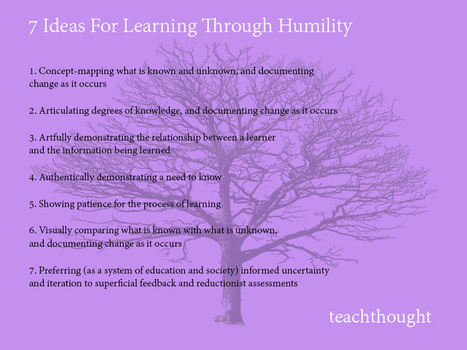Research and publish the best content.
Get Started for FREE
Sign up with Facebook Sign up with X
I don't have a Facebook or a X account
Already have an account: Login
 Your new post is loading... Your new post is loading...
 Your new post is loading... Your new post is loading...
|
Beth Dichter's curator insight,
December 20, 2012 10:54 PM
How do failures improve us? This post explores 8 ways that failures teach us lessons, including building empathy, humility, flexibility and creativity. Engineers understand that failure is a part of the learning process, yet in school we tend to look at failure as a negative component of learning. Is it possible for us to look at our practice and provide opportunities for our students to learn from their failures? |












Es evidente que sólo si crees que puedes aprender lo harás.